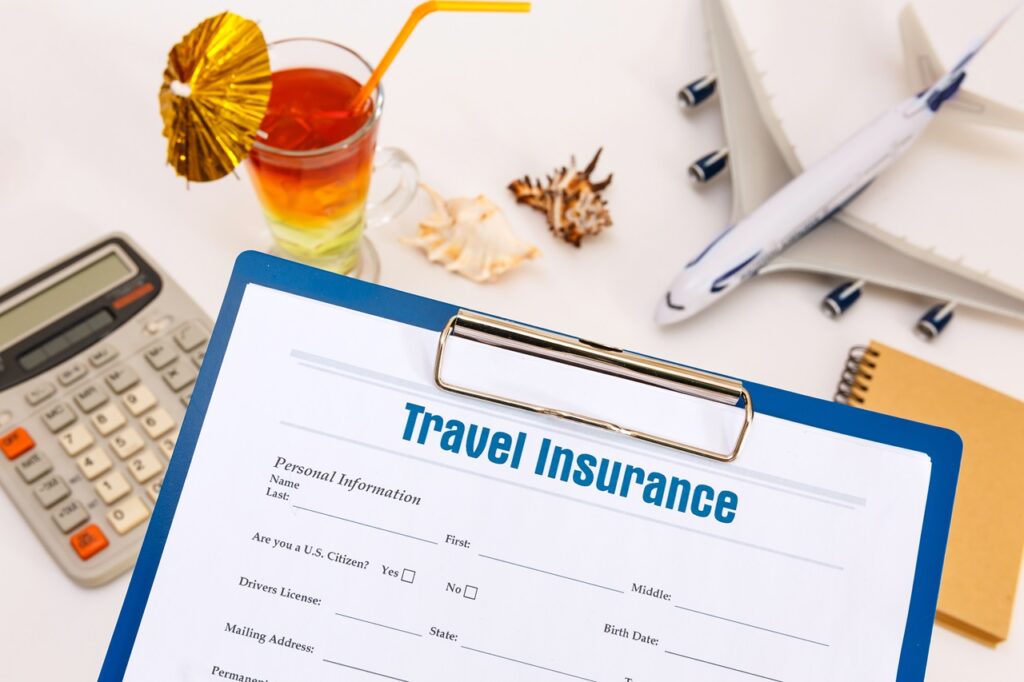Travel can often be unpredictable. One moment, everything seems set, and the next, you’re dealing with unexpected cancellations, overseas medical emergencies, or delayed flights. That’s why purchasing travel insurance early can be the best way to ensure your trip is protected.
For instance, imagine booking the perfect holiday, only for something unexpected to derail your plans. Do you know when is the right time to buy travel insurance to make sure you’re covered for such situations?
This guide will explain why the timing of your insurance purchase is crucial, how buying early can maximise your coverage, and what are some common pitfalls to avoid. Whether you’re worried about trip cancellations, lost luggage, or overseas medical emergencies, knowing the right time to act can make the biggest difference.
What Is Travel Insurance?
Travel insurance is your safety net when you’re on the road, offering financial protection against unexpected events during your trip.
Whether it’s a sudden medical emergency abroad or a cancelled flight, having travel insurance cover can mean that you’re not left dealing with huge expenses on your own. The right policy can save you a lot of stress—and money.
Here is a quick recap of some key features to look for in a travel insurance policy:
- Cover for unexpected overseas medical expenses
- Cover for unforeseen events like trip cancellations, delays, or interruptions
- Medical assistance for emergencies abroad
- Compensation for lost, damaged, or delayed baggage
- Emergency evacuation services for critical situations overseas
- Personal liability protection in case you damage property or injure someone during your trip
Having these in your policy means you’re safeguarded against common travel mishaps.
Why Timing Matters When Purchasing Travel Insurance
Timing is everything when it comes to buying travel insurance. Purchasing your policy early ensures that you have cover from the moment you start planning your trip, not just after you’ve packed your bags. The sooner you buy, the more cover you unlock.
Benefits of Purchasing Early
- Immediate Protection: Coverage kicks in as soon as you purchase the policy, protecting you from a range of unforeseen events that could force you to cancel your trip.
- Comprehensive Coverage: By purchasing early, you get access to a full range of benefits, including trip cancellation cover.
- Financial Protection: Early purchase helps protect non-refundable deposits and payments you’ve made toward your trip.
Risks of Delayed Purchase
Waiting to buy insurance can leave you vulnerable to a host of risks. If you wait too long, you might find that some coverage options are no longer available, or worse, an unforeseen event could occur before you’re covered.
- Existing Events Are Not Covered: Insurance doesn’t cover events that are already happening or are predicted to happen when you make the purchase—think tropical cyclones.
- Potential for Uncovered Cancellations: Without insurance, any unexpected event leading up to your trip, like a family member’s illness or personal injury, might not be covered.
Take the case of a traveller who delayed buying travel insurance for their culinary tour in Italy. Just a week before their scheduled departure date, their spouse suffered a back injury, forcing them to cancel the trip. Since they hadn’t purchased insurance early enough, they missed out on trip cancellation benefits, losing their entire investment. Don’t let this be you!
When to Buy Travel Insurance
Depending on when you buy your policy, you may unlock different benefits or find certain cover options unavailable. Let’s break down the best times to purchase coverage and what you need to know for each situation.
Immediately After Booking Your Trip
Buying travel insurance policies right after booking is the best way to maximise cover. It ensures that you’re protected against a range of unforeseen events, like a family member falling ill, that may force you to cancel. So, set a reminder to buy your insurance as soon as you’ve booked your trip!
Before Final Trip Payment
If you haven’t bought insurance yet, you’ll want to before making your final trip payment. Some policies require this for certain covers to apply. This is also a great time to evaluate any changes to your plans that could impact your insurance needs.
Last-Minute Purchases
Yes, it’s still possible to purchase travel insurance last-minute, sometimes even up to the day before your trip! But be aware that last-minute purchases often come with limitations.
You may miss out on pre-departure trip cancellation cover. Whenever you buy, always read the fine print of your product disclosure statement (PDS).
Factors Influencing the Timing of Your Purchase
When deciding when to purchase travel insurance, there are several factors that can guide your timing. From protecting big trip costs to covering unforeseen health concerns, here’s what to keep in mind.
Trip Cost and Non-Refundable Expenses
For high-value trips, the larger the ticket price, the more important it is to buy insurance early. You’ll want to ensure your travel purchases are protected from the start.
Non-refundable deposits are common for flights, cruises, and accommodations, and early purchase ensures you’re protected if things go wrong before your departure date. Why risk losing that hard-earned money?
Destination and Travel Advisories
Your destination matters when it comes to travel insurance. If you’re heading to a high-risk area, it’s wise to buy early. Keep an eye on government travel advisories, too—insurance might not cover you if a Level 4 – Do Not Travel warning is issued before your policy purchase.
And if your destination is prone to unpredictable weather like cyclones, timely cover is a must, since predicted natural disasters won’t be covered.
Personal Circumstances
Life can be unpredictable. If your job security feels shaky, consider trip cancellation cover in case you need to cancel for certain work-related reasons. Likewise, if a family member gets unexpectedly sick or a range of other personal circumstances affect your ability to travel, buying early ensures you’re protected.
Planning ahead with these factors in mind will help you make the best decisions for protecting yourself and your trip. Please refer to the PDS for further information.
Understanding Policy Start Dates and Duration
When you purchase travel insurance, your cover typically begins as soon as you purchase if you have selected Trip Cancellation cover. If something unexpected happens—like a medical emergency or a family member gets sick—before your scheduled departure date and you need to cancel, you could be covered if you have selected Trip Cancellation cover.
As for how long your travel protection lasts, the policy generally covers you for the duration of your trip – which you will input during the purchase process – starting from the purchase date and ending when you return home (as per your selected return date). Keep in mind some benefits, like travel medical cover, offers protection only while travelling internationally. Most policies are designed to protect you throughout the full travel period you’ve selected.
However, if your trip gets extended or your return is delayed due to unforeseen circumstances, many policies offer extensions to cover the additional days. It’s always a good idea to check product disclosure statement to see how these extensions work and if there are any restrictions.
A Common Misconception About Travel Insurance Timing
Travel insurance can sometimes be misunderstood, leading people to make choices that leave them vulnerable when things don’t go as planned. Let’s clear up a few common misconceptions about travel insurance, so you can make informed decisions and protect your travel the right way.
“I Can Wait Until Right Before I Leave”
Many believe they can just wait until the last minute to purchase insurance. However, buying insurance just before your trip can expose you to a greater level of risk. You may not have the benefit of important coverages, like trip cancellation, to protect you from certain unforeseen events.
Can You Buy Travel Insurance After Departure?
Typically, no. This may depend on the type of plan, but many plans should be purchased prior to travelling. Some insurers offer policies that allow you to purchase coverage post-departure but keep in mind that benefits are often more limited if this is the case.
How to Choose the Right Travel Insurance Policy
Choosing the right travel insurance policy can feel overwhelming, but breaking it down into simple steps makes the process much easier. Here are the key steps to guide you in selecting travel insurance:
- Assess Your Needs: Begin by evaluating your travel details. Think about your destination, activities planned, and potential risks. Are you going on an adventure trip, or is it a family holiday? Different trips require different levels of coverage.
- Review Policy Options: Check the different coverage levels offered by Travel Insured Australia in our policy documentation. Make sure to evaluate the key features, like overseas medical coverage, trip cancellation benefits, and emergency assistance, to find the plan that best suits your needs. Travel Insured Australia offers a range of flexible plans, allowing you to tailor your cover to your specific travel requirements.
- Read the Fine Print: Pay attention to coverage limits, exclusions, and policy terms. Knowing what’s not covered is just as important as knowing what is.
- Check for Age Limits and Health Requirements: With Travel Insured Australia, you must be 18 years of age or older to purchase the policy, and there’s an upper age limit of 99 years. Additionally, certain benefits have conditions or have specific criteria.
Following these steps will help you confidently choose travel insurance for your next adventure!
Tips for Maximising Your Travel Insurance Benefits
To get the most out of your travel insurance, it’s essential to be organised and fully aware of what your policy covers. A few simple steps can make all the difference when it comes to handling claims or emergencies during your trip.
- Document Everything: Keep records of all your travel destinations, bookings, receipts, and any relevant communications. This will streamline the claim process in case something goes wrong.
- Understand Exclusions: Familiarise yourself with what your policy doesn’t cover. Knowing the exclusions helps avoid surprises if you encounter an issue that isn’t protected.
- Keep Policy Information Handy: Always have both digital and physical copies of your policy and emergency contact numbers on hand. This way, you can easily access your coverage details wherever you are.
Timing Your Travel Insurance Purchase Right to Unlock Benefits
When it comes to protecting your trip, timing is everything. The optimal time to buy travel insurance is as soon as you book your trip. This ensures you’re covered for a range of unexpected cancellations or emergencies before your departure. Waiting too long could mean missing out on important benefits like trip cancellation protection.
Whether you’re planning a single getaway or taking multiple trips throughout the year, having the right coverage offers peace of mind. Remember, it’s always best to evaluate your needs, compare policies, and read the fine print to avoid surprises down the road.
So, if you’re still on the fence and wondering “When should I buy travel insurance?” The answer is simple: as early as possible to unlock full coverage and ensure your travel plans are protected from the moment you start planning. Protect your upcoming trip today—get a free travel insurance quote now.
Frequently Asked Questions
What Should Be the Start Date of Travel Insurance?
For single-trip policies, cover will begin when you purchase if you have selected Trip Cancellation cover.
What Happens If I Don’t Buy Travel Insurance?
Without travel insurance, you’re on the hook for any additional costs that come up, from overseas medical emergencies to trip cancellations or lost luggage. This could mean significant out-of-pocket expenses, along with a whole lot of stress.
Can I Change My Travel Insurance Policy After Purchase?
Yes, with Travel Insured Australia, you can make adjustments to your travel insurance policy after purchasing, such as changes in travel dates or destinations. To ensure a smooth process, it’s important to contact us as soon as possible with your updated travel information, and we will guide you through the steps for updating your policy.
Please note that this blog provides a summary of the available coverage. Refer to the PDS for further information.




